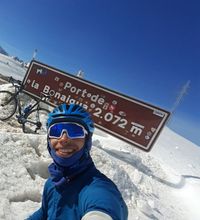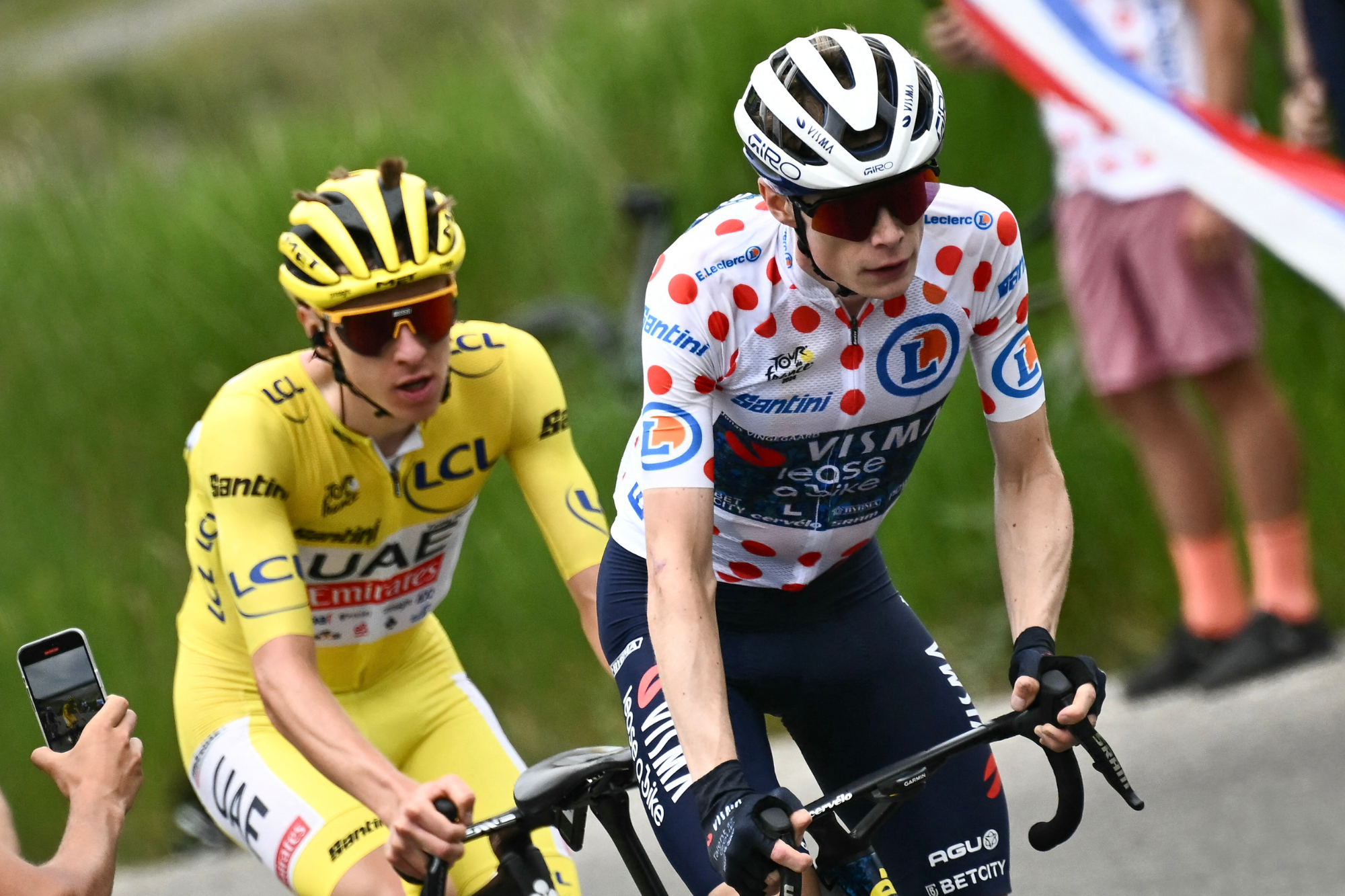What is carbon monoxide inhalation, the controversial but legal practice people that emerged at the Tour de France?
UAE Team Emirates, Visma-Lease a Bike and Israel-Premier Tech confirmed that their riders occasionally inhale carbon monoxide for the purpose of optimising altitude training


Last July, the Tour de France was abuzz with talk around carbon monoxide (CO) inhalation, with both Tadej Pogačar and Jonas Vingegaard confirming their previous use of the controversial but legal practice.
An Escape Collective investigation towards the end of the Tour’s second week introduced the concept of CO inhalation to the wider public, detailing how athletes across various sports are turning to the technique to optimise their altitude training and potentially improve their body’s blood levels.
Using an expensive device called a carbon monoxide rebreather, CO rebreathing is a measurement tool that enables athletes to monitor key blood values such as haemoglobin levels, and it is usually carried out at the start and finish of an altitude camp, where the numbers of red bed cells naturally increase. Several squads at the Tour have confirmed they have done this.
Additionally, the same device can also be used for carbon monoxide inhalation, which is the process of inhaling a precise amount of the poisonous gas for the purpose of performance enhancement. There is no evidence of WorldTour teams doing this, but growing research suggests that CO inhaling can significantly improve an athlete’s aerobic capacity, such as their V02 max.
The technique of CO rebreathing is not banned by the World Anti-Doping Agency (WADA), but CO inhaling would appear to contradict their rules around artificial manipulation of the blood.
The UCI now aims to have it banned.
Which teams are involved?
UAE-Team Emirates, Visma-Lease a Bike and Israel-Premier Tech all confirmed that they use CO inhalation with their athletes.
The latest race content, interviews, features, reviews and expert buying guides, direct to your inbox!
“Carbon monoxide rebreathing is a method to assess total haemoglobin mass and has been used in altitude training and research for over 20 years. It is a well established, safe, professional method that is backed by a very large amount of research,” a statement from UAE said.
“We measure the haemoglobin mass at the start of an altitude training camp and at the end of the camp. In this way we minimise our athlete’s exposure to carbon monoxide and not the other way around. Any links to our team using this type of technology for unethical purposes are being made without any merit and without any facts or evidence to support them.”
Visma’s head of performance, Mathieu Heijboer, confirmed to Escape that “for a few years” they’ve been working with Bent Rønnestad, an expert in altitude physiology who carries out the testing.
Israel-Premier Tech said they use the Detalo Blood Volume Analyser “for testing purposes to measure the impact of altitude training.”
What have Pogačar and Vingegaard said?
Four days after the publication of the Escape report, Pogačar was asked about CO inhalation and claimed ignorance, saying “I don’t know anything about it. When I heard this, I was thinking about car exhausts.”
A day later, however, Pogačar clarified his position. “It’s a test in altitude camp to see how you respond to altitude,” he said. “You need to do this test, it’s like a two- or three-minute-long test. You breathe into a balloon for one minute and then you see the haemoglobin mass. It’s a pretty simple test to see how you respond to altitude training. It’s not like we’re breathing exhaust pipes every day from cars.”
The Tour de France leader was subsequently asked if grey areas have to be operated in to be a successful professional cyclist. “I think you should avoid the grey areas by far,” he answered. “I think a grey area is also caffeine and these kind of things. You just do what the doctors recommend, what is good for the health and follow those guidelines.”
Vingegaard said that CO inhalation, according to his medical team, “sends something into the lungs that is similar to smoking a cigarette [and] is not something that is dangerous.”
He added: “There is nothing suspicious about it. We measure how many red blood cells you have in your blood and the effect of altitude training camp. We measure the day we get to altitude and then the day we go back down. We see the difference in how much haemoglobin is built up. There is nothing more to it.”
What do other says?
WADA have not released a statement addressing CO inhalation directly, but the president of the UCI, David Lappartient, told Le Telegramme in July that cycling world's governing body, has discussed the issue "internally."
He added: "Technically, it's a complex subject. If you take a lot of carbon monoxide, it's a poison. But athletes use it as a tool to measure total hemoglobin mass, and not just in cycling.
"Does more regular inhalation have an effect on performance? This has not been scientifically proven. A meeting of experts will take place at the end of August and the UCI will refer this matter to WADA. The question is whether the (measuring) technique is being misused and whether or not it improves performance.
"Carbon monoxide, I can understand that they need it as a measuring tool. But we must not misuse it and use it for other reasons."
The International Testing Agency, the body who carries out anti-doping tests in cycling, is also understood to be investigating.
CW spoke with one team official at the Tour de France who was concerned about how CO inhalation would be portrayed by the public, even if it is not illegal. “It’s the optics of it,” they said. “How do we explain to people that cyclists are breathing in carbon monoxide? Here we are again at the Tour de France talking about unethical practices.”
A freelance sports journalist and podcaster, you'll mostly find Chris's byline attached to news scoops, profile interviews and long reads across a variety of different publications. He has been writing regularly for Cycling Weekly since 2013. In 2024 he released a seven-part podcast documentary, Ghost in the Machine, about motor doping in cycling.
Previously a ski, hiking and cycling guide in the Canadian Rockies and Spanish Pyrenees, he almost certainly holds the record for the most number of interviews conducted from snowy mountains. He lives in Valencia, Spain.
You must confirm your public display name before commenting
Please logout and then login again, you will then be prompted to enter your display name.
